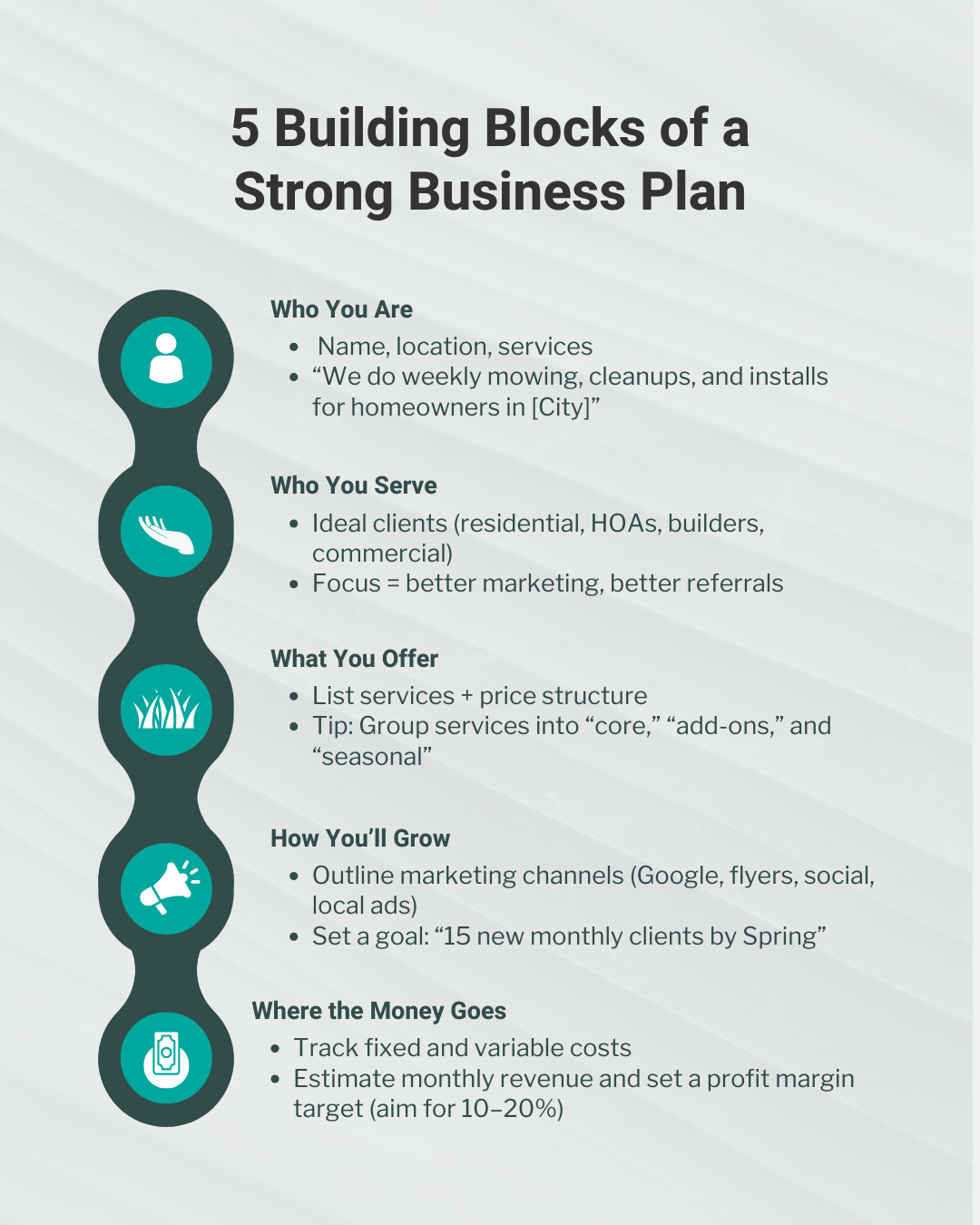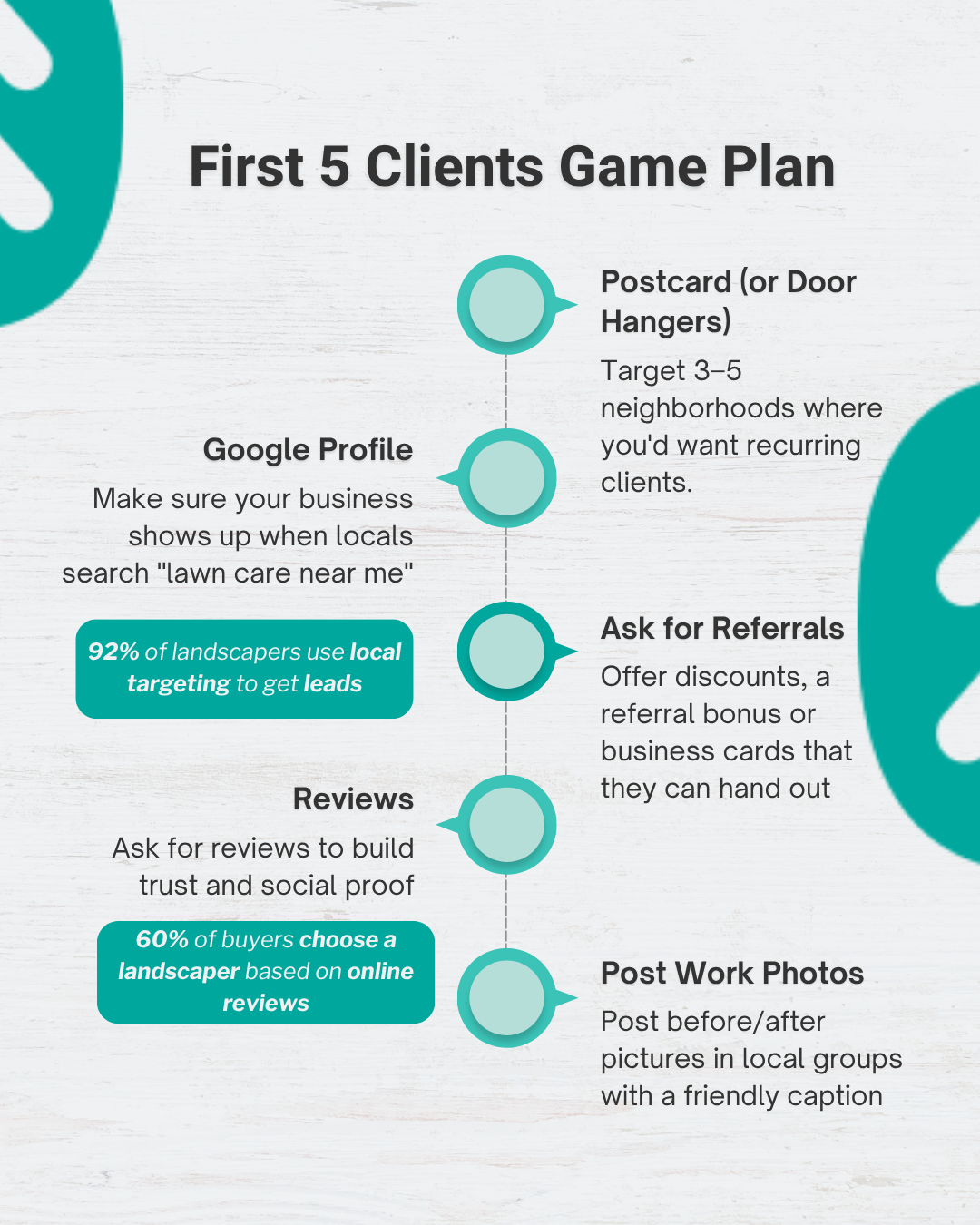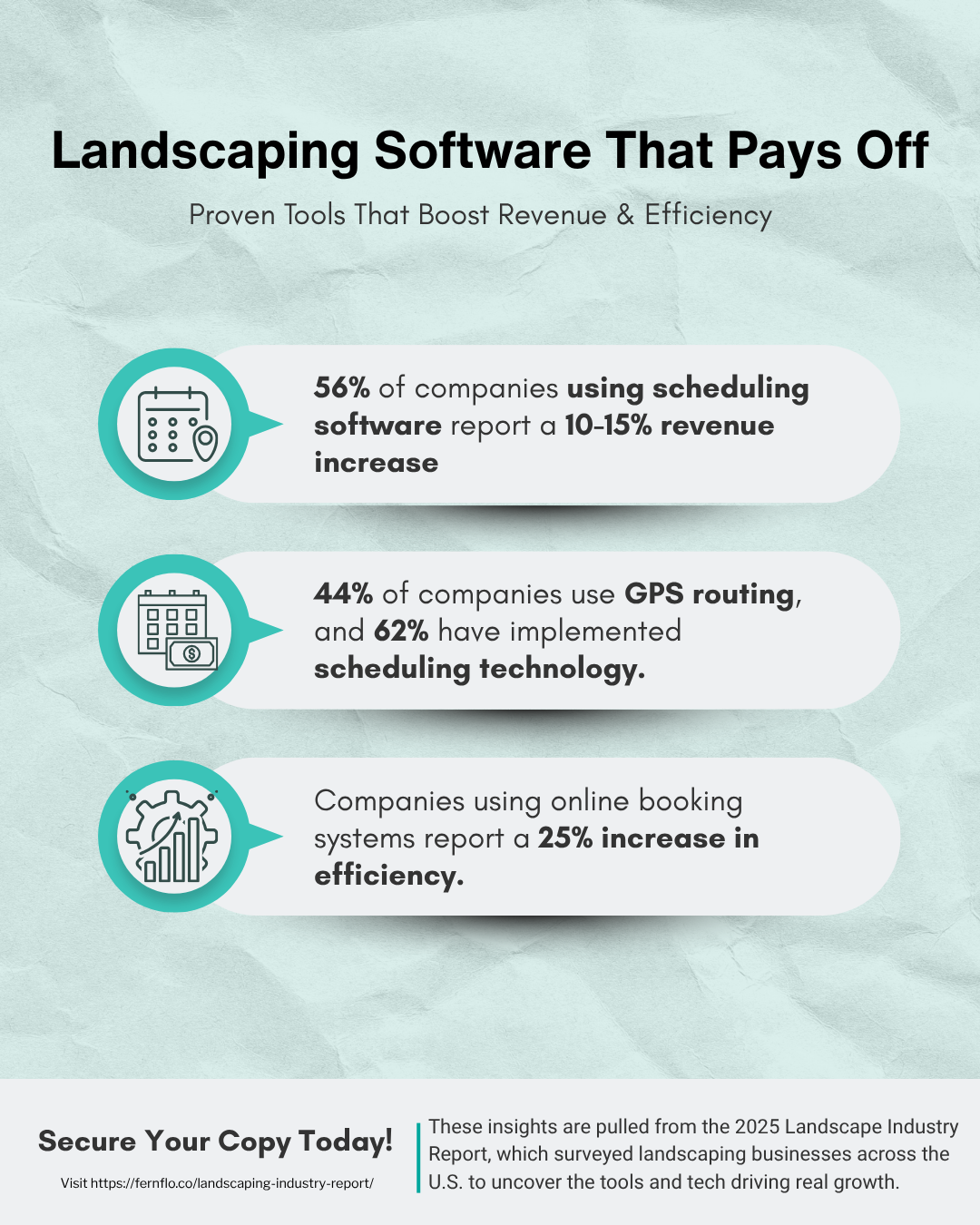Starting a landscaping business can be a smart way to earn money, especially if you enjoy working outdoors and have an eye for maintaining lawns and gardens. The landscaping industry is booming, and there’s always demand for services like lawn care, garden design, and maintenance.
But running a landscaping business isn’t as easy as picking up a mower and heading to a job. You need a plan, solid marketing, and the right tools. Without these, you could easily miss opportunities or even waste money on things that won’t grow your business.
In this post, we’ll break down exactly how to start your landscaping business. From selecting your name to getting customers and managing employees, we’ve got all the key steps covered. Plus, we’ll give you actionable tips and tools to make your business a success.
Selecting a Name
Your business name is the first thing potential customers will see, and it sets the tone for your brand. You need a name that’s:
![[thumb] How To Name Your Landscaping Business](https://fernflo.co/wp-content/uploads/2025/07/THUMB-How-to-Name-Your-Landscaping-Business.jpg)
How to Name Your Landscaping Business
Start by researching other landscaping businesses in your area. What names do they use? Avoid choosing something too generic. Also, check domain availability. Your name should be available as a website URL and on social media platforms. Consistency across your online presence will help customers find you.
Create your own using AI: How to Choose the Perfect Landscaping Business Name Using ChatGPT (And Make Sure It’s Available)
Write a Landscaping Business Plan
Having a business plan isn’t just for big companies. It’s essential, even for small landscaping businesses. A clear plan helps you set goals, structure your pricing, and define your target market.
Your business plan should cover:
- Services: What landscaping services will you offer? Will you focus on lawn care, tree trimming, garden design, or something else? You can always expand later, but start with a few core services that you can manage well.
- Budget: What is the initial cost to get started? Think about equipment, marketing, insurance, and any employees you’ll need.
- Pricing: Research what other landscaping businesses charge. Price your services competitively based on the market and the quality of your work.
Creating a business plan isn’t difficult, and it doesn’t have to be long. Keep it simple and focus on the basics. If you need a little more guidance, we’ve included a business plan template to help.
Start Your Journey Now. Get our free DIY Starter Plan to launch your landscaping business!

Selecting a Business Structure
Choosing the right business structure is a key decision. Your structure impacts taxes, liability, and how you manage your company. Here are the most common options:
- Sole Proprietorship: This is the easiest and least expensive structure. However, you’re personally responsible for any debts or legal issues that arise.
- LLC (Limited Liability Company): This option offers more protection for your assets. It’s a little more expensive to set up, but it’s worth it for the added legal protection.
- Corporation: Best suited for larger businesses, a corporation has more paperwork and regulations but offers the best protection for your assets.
If you’re unsure, talk to a lawyer or accountant who can help you choose the best structure for your business.
DOWNLOAD: Our free Cheat Sheet to choose the right business structure for your landscaping company!
Insurance
Running a landscaping business comes with risks. Insurance protects you and your business. General Liability Insurance: Covers damage or injury that may happen on a job site.
Make sure you have the right coverage for your business size and risk level. It’s a smart investment that can save you from costly lawsuits or accidents.
DOWNLOAD: Everything You Need to Know About Insurance
Selecting an Initial Service List
When starting, keep things simple. Choose services that are in demand in your area, and focus on delivering them well. Here are a few popular services to consider:
- Lawn Mowing: This is a staple of any landscaping business. It’s a recurring service, which can help bring in steady cash flow.
- Edging and Trimming: These services are quick but add a lot of value to the overall appearance of a lawn.
- Seasonal Clean-ups: Spring and fall clean-ups are in high demand. Offering these services will help you tap into both spring and autumn business.
- Mulching and Fertilization: If you’re looking to expand beyond basic lawn care, these services are often needed to maintain healthy landscapes.
Keep your list manageable at first, and focus on services you’re comfortable delivering. As your business grows, you can add more services based on client demand.
Download: Building a Profitable Service List
Getting Your First Customers
Getting your first customers can be tough, but there are several ways to start building a client base:
- Word of Mouth: Start by telling friends and family about your business. They can help spread the word.
- Online Presence: Create a simple website and list your business on Google My Business. This will help you appear in local searches.
- Social Media: Set up social media accounts on Facebook and Instagram. Share your work and engage with potential clients.
- Offer Discounts: To attract first-time clients, offer a discount for the first service. For example, “Get 20% off your first lawn mowing service.”
Once you get a few customers, ask for referrals and online reviews to continue growing your business. Keep getting ghosted by clients? Learn How to Generate Quality Leads for Your Lawn Care Business

Hiring and Managing a Crew
As your business expands, you’ll need a crew to help with larger jobs. Here are a few tips for hiring and managing employees:
- Hire for reliability: Look for workers who are dependable, hardworking, and have experience in landscaping.
- Clearly define roles: Set expectations for each team member. Clear communication helps avoid confusion and ensures jobs get done right.
- Use scheduling tools: Consider using software to schedule jobs, track progress, and communicate with your crew. Tools like Jobber can help keep everything organized.
Managing a team can be challenging, but with the right people and tools, you’ll be able to scale your business effectively.
Software to Use
Managing a landscaping business involves a lot of moving parts—scheduling, client communication, billing, and more. Here’s where software comes in. You’ll need tools to help:
- Scheduling: Software like Jobber can help you schedule jobs, track time, and stay organized. Get Jobber using our link.
- Invoicing: Use tools like QuickBooks or FreshBooks to send invoices and manage payments. Choose platforms that are well-suited for landscaping businesses
- CRM: A good customer relationship management (CRM) system keeps track of client info, schedules, and communication history.
Investing in the right software will save you time and help you run your business more efficiently. Learn how technology is changing the landscaping industry here.

Bonus Tips
Build a marketing plan
Use social media, Google ads, and local SEO to get noticed.
Focus on customer service
Provide great service to build a loyal customer base.
Track your expenses
Keep a close eye on your budget to ensure your business is profitable.
Bottom Line
Starting a landscaping business takes effort, but it’s worth it. Follow these steps, stay organized, and focus on delivering quality service. With the right approach, your business will thrive. Ready to start? Explore our three main service plans, each tailored for a different stage of the growth of your business.